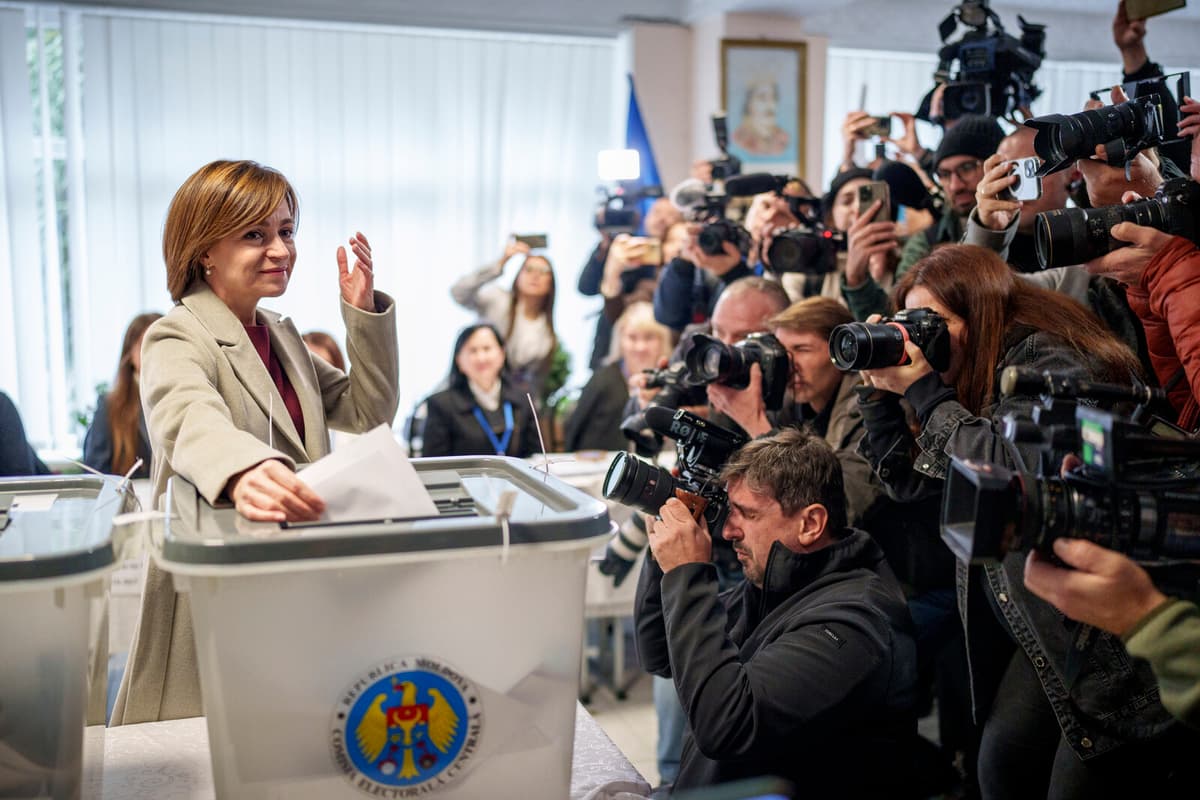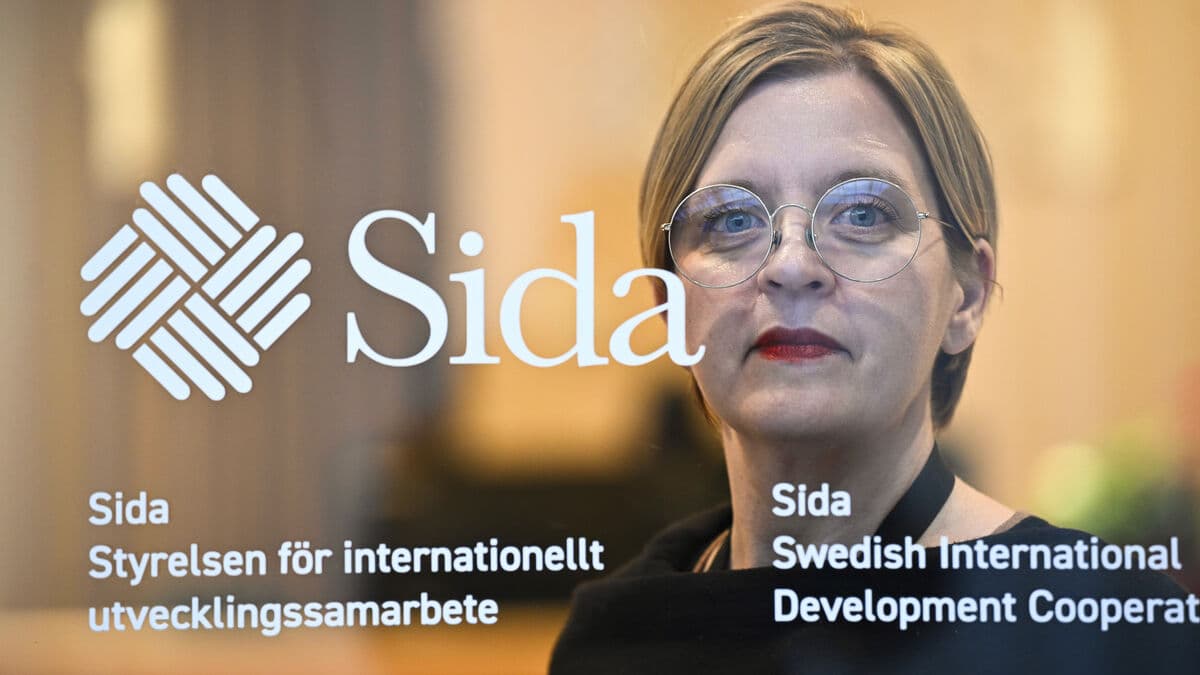Russia is accused of having tried to influence the referendum in Moldova, which concerned writing the country's striving for EU membership into the constitution.
When almost all votes had been counted, the EU supporters had received 50.4 percent. This meant a minimal lead of 13,000 votes.
The President of the EU Commission, Ursula von der Leyen, sent congratulations on Monday:
"Congratulations to the people of Moldova and to you (Sandu). You have done it again."
Through the referendum, Moldova has overcome a major obstacle on the path to becoming an EU member.
Russian influence
But for a long time, it seemed as though the no-side might unexpectedly win.
The President commented on the no-side's unexpectedly strong results on Sunday as a consequence of democracy and freedom in the country being "subjected to an attack of unprecedented scope".
Russian influence operations have, according to Sandu, been going on for several months.
The President of the EU Commission also claimed Russian involvement in a post on X:
"Moldova has shown its independence, its strength, and that the country wants a European future, despite Russia's hybrid tactics."
Prime Minister Ulf Kristersson (The Moderate Party), who spoke with President Sandu on the phone on Monday, welcomes the election outcome in a statement.
"That Russia and its agents are trying to sabotage the election in Moldova is an extreme threat to all of Europe", writes Kristersson and promises continued support to Moldova's defense against Russian hybrid attacks.
Bought votes?
The suspicions concern an enormous influence campaign, where votes from hundreds of thousands of people may have been bought by pro-Russian groups. Last week, over 100 Moldovans were also arrested who were supposed to have been trained in Moscow to create disturbances around the voting.
Russia has denied involvement in the election and demands evidence for the accusations. Furthermore, the Kremlin's spokesperson, Dmitrij Peskov, claims, without presenting any evidence, that they have discovered "irregularities" in the vote count.
EU-friendly Sandu was the driving force behind the decision for Moldova to apply for EU membership in 2022, after Russia's full-scale invasion of Ukraine.
In parallel with the referendum, a presidential election was held, where Maia Sandu received the most support with 42 percent. But since she did not receive over 50 percent, there will be a second round of voting on November 3, where she will face the pro-Russian candidate Aleksandr Stoianoglo, who received around 26 percent of the votes.






